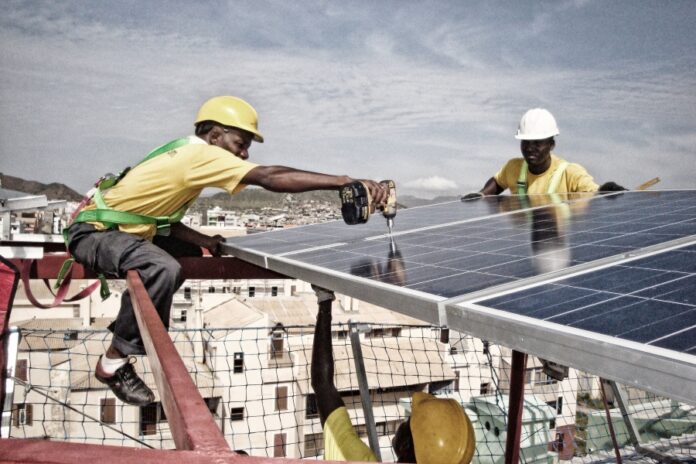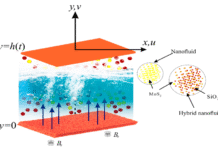A recent study by Lebepe et al. (2025) titled “Techno-economic optimisation modelling of a solar-powered hydrogen production system for green hydrogen generation,” published in Sustainable Energy Research by Springer Nature, reveals that the combination of monocrystalline solar panels and alkaline electrolysers provided the most economical solution.
“
Using monocrystalline solar panels with alkaline electrolysers provides the most cost-effective solution for green hydrogen production in Limpopo. – Lebepe et al. 2025
The study explores the techno-economic optimization and performance modeling of a solar-powered system to produce green hydrogen in rural Limpopo, South Africa. The goal is to make green hydrogen—a cleaner alternative to fossil fuels—more efficient and affordable. By comparing different configurations of solar panels and electrolysers (the equipment used to produce hydrogen from water via electricity), the researchers aim to find the most cost-effective and efficient setup for green hydrogen production. They employ advanced tools like HOMER software for modeling and sensitivity analysis, which helps test different variables like component efficiency and costs. This research is particularly valuable because it addresses challenges in settings with limited infrastructure and energy resources. It offers insights into deploying green hydrogen systems in off-grid areas, contributing to global energy security, sustainability, and the transition away from fossil fuels.
How the Study was Conducted
The authors configured and modeled the system using HOMER® Pro software. This included integrating solar panels and electrolysers to produce green hydrogen, which was stored in hydrogen tanks for various uses. Two types of solar panels (polycrystalline and monocrystalline) and two types of electrolysers (alkaline and solid oxide) were chosen based on their efficiency and cost-effectiveness. The software simulated different configurations to minimize costs like Net Present Cost (NPC) and Levelized Cost of Hydrogen (LCOH). Sensitivity analyses were conducted to evaluate the impact of variables like electrolyser efficiency and component costs. Limpopo was selected due to its abundant solar resources. Localized data, such as solar irradiance and economic parameters, were integrated into the model. The study identified the most cost-effective configuration, which involved monocrystalline solar panels and alkaline electrolysers. This setup achieved the lowest LCOH of 37.50 ZAR/kg (2.12 USD/kg).
What the Authors Found
The authors found that the combination of monocrystalline solar panels and alkaline electrolysers provided the most economical solution. It resulted in the lowest Levelized Cost of Hydrogen (LCOH) at 37.50 ZAR/kg (approximately 2.12 USD/kg) and a Net Present Cost (NPC) of ZAR 68 million (about USD 3.65 million).
Why is this important
Climate Action and Decarbonization: The research directly addresses the need to transition away from fossil fuels and reduce carbon dioxide emissions. Green hydrogen, produced using renewable energy, is a cleaner alternative to traditional hydrogen production, which often relies on fossil fuels.
Energy Security and Sustainability: By focusing on off-grid areas like Limpopo, the study highlights how standalone systems can supply sustainable energy to rural regions with limited infrastructure. This supports energy security and makes clean energy accessible to underserved communities.
Technological Advancement: The study contributes to optimizing green hydrogen systems by identifying cost-effective and efficient combinations of solar panels and electrolysers. This paves the way for improved technology and scalability in the future.
Economic and Social Impact: Lowering the costs of green hydrogen production can make it viable for diverse applications across industries like transportation, manufacturing, and energy storage. This could create jobs, stimulate economic growth, and foster sustainable development.
Global Energy Transition: Green hydrogen is expected to play a significant role in achieving net-zero emissions. Insights from studies like this guide investments, policy decisions, and infrastructure development for a greener and more sustainable future.
What the Authors Recommended
- The study recommends enhancing electrolyser efficiency and reducing costs for solar panels and electrolysers to make green hydrogen production more affordable.
- Explore ways to lower the levelized cost of Hydrogen (LCOH) and Net Present Cost (NPC) through innovative system configurations and sensitivity analyses.
- The study emphasizes tailoring green hydrogen systems to specific regions, like Limpopo, leveraging abundant solar resources for optimal performance.
- Furthermore, the study advocates addressing fluctuating hydrogen demand and system scalability to ensure cost-effective deployment in diverse settings.
- In addition, the authors emphasize promoting the use of green hydrogen across multiple sectors, including transportation, manufacturing, and energy storage, to support sustainable development.
In conclusion, the study by Lebepe et al. (2025) provides valuable insights into optimizing solar-powered green hydrogen production, particularly in off-grid regions like Limpopo. By identifying the most cost-effective combination of monocrystalline solar panels and alkaline electrolysers, the research highlights a viable pathway for reducing hydrogen production costs and promoting energy sustainability. This work supports the global transition to cleaner energy sources, offering solutions that enhance energy security, drive technological advancements, and contribute to economic growth. As green hydrogen gains momentum in the fight against climate change, studies like this pave the way for a more sustainable and decarbonized future.
















 The African Research (AR) Index is a comprehensive scholarly directory and database focused explicitly on journal publishers that publish and disseminate African research.
The African Research (AR) Index is a comprehensive scholarly directory and database focused explicitly on journal publishers that publish and disseminate African research.

